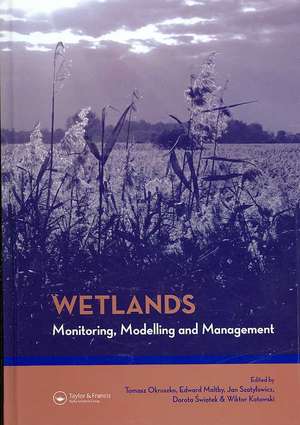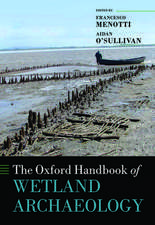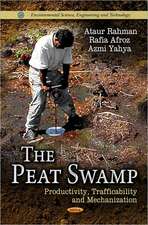Wetlands: Monitoring, Modelling and Management
Editat de Tomasz Okruszko, Edward Maltby, Jan Szatylowicz, Dorota Miroslaw-Swiatek, Wiktor Kotowskien Limba Engleză Hardback – 26 iul 2007
Preț: 1020.45 lei
Preț vechi: 1369.88 lei
-26% Nou
Puncte Express: 1531
Preț estimativ în valută:
195.27€ • 204.39$ • 162.52£
195.27€ • 204.39$ • 162.52£
Carte tipărită la comandă
Livrare economică 31 martie-14 aprilie
Preluare comenzi: 021 569.72.76
Specificații
ISBN-13: 9780415408202
ISBN-10: 0415408202
Pagini: 362
Dimensiuni: 174 x 246 x 25 mm
Greutate: 0.77 kg
Ediția:1
Editura: CRC Press
Colecția CRC Press
ISBN-10: 0415408202
Pagini: 362
Dimensiuni: 174 x 246 x 25 mm
Greutate: 0.77 kg
Ediția:1
Editura: CRC Press
Colecția CRC Press
Public țintă
Postgraduate and ProfessionalNotă biografică
Tomasz Okruszko, Edward Maltby, Jan Szatylowicz, Dorota Miroslaw-Swiatek
Cuprins
Preface, Acknowledgements, 1 Monitoring, 2 Modelling, 3 Management, Author index
Descriere
This volume highlights research on the construction of a vigorous and spatially-explicit model, which will describe the dynamics of wetland vegetation in relation to environmental variables, including hydrological regimes, sediment type, and nutrient availability. It features new information on ecological functions, environmental services, and societal values associated with wetlands, highlighting how to turn this knowledge into practical benefits for sustainable and integrated wetland management. Individual chapters address the ethics and sociology of wetlands, and the ecology, ecohydrology and conservation practice of a variety of landscapes and countries.













